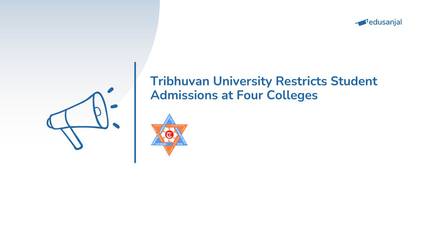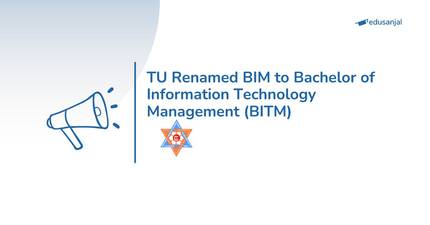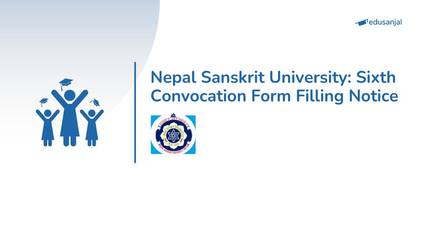The University Assembly convened its Annual Day Meeting to commemorate the 64th Annual Day of Tribhuvan University. During this gathering, significant resolutions were made, such as the endorsement of the 61st Merit List and the allocation of the annual budget for the year 2080/81. For the academic term 2080/81, the university has sanctioned a budget amounting to Rs.26,24,94,55,000. Likewise, the merit list comprises a total of 77,103 students who obtained transcripts between Asadh 01, 2079, and Jestha 01, 2080.
The student population at the various faculties and institutes is as follows: The Faculty of Management has 28,438 students, the Faculty of Education has 18,163 students, the Faculty of Humanities and Sociology has 15,018 students, the Faculty of Law has 2,363 students, the Institute of Science and Technology Studies has 7,278 students, the Institute of Engineering Studies has 2,000 students, the Institute of Medicine has 2,010 students, the Institute of Agriculture and Animal Science has 650 students, and the Institute of Forestry has 300 students.
During the celebration of the 64th annual day, Prime Minister and Chancellor Pushpa Kamal Dahal addressed the gathering at Tribhuvan Smriti Bhawan in Kirtipur. The Prime Minister shared updates on the university's ongoing educational, academic, and administrative activities, and engaged in a discussion about the challenges faced by the institution and their potential solutions. Faculty representatives, staff members, student organizations, and university stakeholders convened to strategize both short-term and long-term plans for advancement and growth, aligning them with the immediate needs of the public. Emphasis was placed on the government of Nepal providing full support for the budget plans and programs presented at the university assembly. The educational programs offered by the university were highlighted for their competitive and positive approach, catering to the aspirations, requirements, and global context of Nepal. This approach enables students to secure suitable positions in the global market. Confidence was expressed in the ability to reduce reliance on foreign circumstances for higher education, alongside organizing the university's academic calendar in a systematic manner. This would lead to the timely publication of results, while considering the students' time, expenses, and security for their future. The Prime Minister and the Chancellor issued special directives to the university officials in this regard.
Also present was the Minister of Education, Science, and Technology, along with Vice-Chancellor Ashok Kumar Rai, who emphasized the continuous enhancement of the university's capabilities and prosperity to produce skilled human resources essential for the country's advancement. They acknowledged the presence of uncivilized and anti-intellectual activities within the university's management and among officials for several years and urged all stakeholders to abstain from such behavior, urging them to seek solutions through constructive dialogue. They underlined that the responsibilities of Tribhuvan University encompass not only the preservation of the nation's history and culture but also the creation of new knowledge and technology for the betterment of humanity globally. The Nepalese government's commitment to establishing Tribhuvan University as a center of excellence in its policies and programs was mentioned, highlighting the importance of restructuring the university, timely updating outdated curricula, and transforming it into a research-oriented and technology-friendly institution. They further called for a rapid pace of progress through the review and enhancement of subject matters in these domains.
During his address, Prof. Dr. Dharma Kant Basnet, the Vice-Chancellor of Tribhuvan University, highlighted several initiatives aimed at enhancing higher education. These initiatives included the completion of ongoing international collaborations, the establishment of a well-organized and robust examination system, and the prompt publication of research findings. Additionally, efforts were made to develop an integrated software system to foster a technology-friendly environment and ensure reliable and high-speed internet connectivity by installing optical fiber in all academic and community campuses. The university also launched an integrated website for effective implementation and electrified the central library to make study materials accessible online. Moreover, the implementation of automated electricity management systems began across the university campuses. To discourage intellectual theft, the use of software was made mandatory, and there was a significant increase in the budget allocated for scientific and policy-related research from the state treasury. As part of the drive for financial discipline, a fund was established to facilitate organization and management of donor and international cooperation. A necessary action plan for the long-pending restructuring of the university was also presented. Furthermore, delayed elections for an independent student union were successfully conducted. In his speech, Vice-Chancellor Prof. Dr. Basnet acknowledged the additional damage caused by the earthquake in 2072 BS. Despite the Reconstruction Authority's commitment to completing all reconstruction work by September 2021, it was revealed that the reconstruction had not yet been completed. While the government had taken responsibility for the retirement of administrative staff, established university teachers and staff, and retired teachers/staff from the school level, the exclusion of university teachers and staff from the retirement responsibility had caused significant disappointment among professors and employees. Prof. Dr. Basnet also urged the Prime Minister and Chancellor to include the retirement responsibility of university teachers and staff in the budget, similar to the provision made for permanent appointments of teachers and staff made prior to 2067 BS.
In the meeting held recently, the Registrar of Tribhuvan University, Prof. Dr. Peshal Dahal, presented the proposed program and budget for the fiscal year 2080/081. The proposed budget amounted to a total of Rs.26,24,94,55,000, with Rs.13,96,54,95,000 allocated for regular programs and operational expenses. For internal operations and expenses, a total of Rs.11,24,64,60,000 was allocated, and a proposal of Rs.1,03,75,00,000 was made for development programs. The session was chaired by the Director of Operations, Prof. Dr. Shivalal Bhusal.













